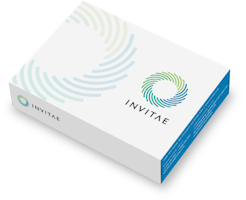
Invitae Baraitser-Winter Cerebrofrontofacial Syndrome Panel
Test code: 04741 •
Test description
The Invitae Baraitser-Winter Cerebrofrontofacial Syndrome Panel analyzes two genes that are associated with Baraitser-Winter cerebrofrontofacial (BWCFF) syndrome, which is characterized by variable brain anomalies ranging from pachygyria through lissencephaly and accompanied by facial features, short stature, congenital heart defects, hearing loss, genitourinary problems, and muscle wasting. Additional features, such as seizures, renal anomalies, and congenital heart defects are also common. These genes were selected based on the available evidence to date to provide Invitae’s broadest test for BWCFF syndrome.
Genetic testing of these genes may confirm a diagnosis and help guide treatment and management decisions. Identification of a disease-causing variant can inform recurrence-risk assessment and genetic counseling.
Ordering information
Turnaround time:
10–21 calendar days (14 days on average)New York approved:
YesPreferred specimen:
3mL whole blood in a purple-top EDTA tube (K2EDTA or K3EDTA)Alternate specimens:
Saliva, buccal swab, and gDNA are also accepted.Learn more about specimen requirementsRequest a specimen collection kitClinical description and sensitivity
Clinical description:
BWCFF syndrome is a heterogeneous syndrome that can present across a spectrum from mild to profound developmental delay and intellectual disability, facial features, coloboma and additional symptoms. The severity of intellectual disability/developmental delay and presence of seizures correlates with the degree to which neuronal migration defects are evident. The most frequent observation is pachygyria; however, some individuals show no obvious defect, while others manifest lissencephaly.
Common facial features include hypoplasia, coloboma of the retina or iris, hypertelorism, ptosis, high-arched brows, broad nasal bridge, long philtrum and pointed chin. Other common features include sensorineural hearing loss, muscle wasting, congenital heart defects and short stature. Additionally, genitourinary/renal problems and contractures have been reported. Expressivity is noted to be highly variable.
Assay information
Invitae is a College of American Pathologists (CAP)-accredited and Clinical Laboratory Improvement Amendments (CLIA)-certified clinical diagnostic laboratory performing full-gene sequencing and deletion/duplication analysis using next-generation sequencing technology (NGS).
Our sequence analysis covers clinically important regions of each gene, including coding exons and 10 to 20 base pairs of adjacent intronic sequence on either side of the coding exons in the transcript listed below, depending on the specific gene or test. In addition, the analysis covers select non-coding variants. Any variants that fall outside these regions are not analyzed. Any limitations in the analysis of these genes will be listed on the report. Contact client services with any questions.
Based on validation study results, this assay achieves >99% analytical sensitivity and specificity for single nucleotide variants, insertions and deletions <15bp in length, and exon-level deletions and duplications. Invitae's methods also detect insertions and deletions larger than 15bp but smaller than a full exon but sensitivity for these may be marginally reduced. Invitae’s deletion/duplication analysis determines copy number at a single exon resolution at virtually all targeted exons. However, in rare situations, single-exon copy number events may not be analyzed due to inherent sequence properties or isolated reduction in data quality. Certain types of variants, such as structural rearrangements (e.g. inversions, gene conversion events, translocations, etc.) or variants embedded in sequence with complex architecture (e.g. short tandem repeats or segmental duplications), may not be detected. Additionally, it may not be possible to fully resolve certain details about variants, such as mosaicism, phasing, or mapping ambiguity. Unless explicitly guaranteed, sequence changes in the promoter, non-coding exons, and other non-coding regions are not covered by this assay. Please consult the test definition on our website for details regarding regions or types of variants that are covered or excluded for this test. This report reflects the analysis of an extracted genomic DNA sample. In very rare cases, (circulating hematolymphoid neoplasm, bone marrow transplant, recent blood transfusion) the analyzed DNA may not represent the patient's constitutional genome.
You can customize this test by clicking genes to remove them.
Primary panel
Question about billing?
Find answers